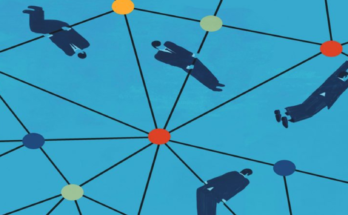Eduard Punset suggested in a recent interview that if we need to make a decision, we should rely on intuition rather than logic. In other words, it is preferable to disregard our regular analytical approach to life for a period when making judgments.
When we examine the history of rationalism, one of the essential works is René Descartes’ “Discourse on the Method”. In the second section of his work, Descartes suggests dividing each problem into as many parts as feasible to ensure proper solution. In the third section, he discusses two dilemmas that unavoidably need decision-making. The first is repairing a house, while the second is getting lost in the wilderness. Isn’t it true that many people would immediately conclude, in the first case, that it is necessary to find some other comfortable accommodation in which to live commodiously during the operations, and in the second, that it would be better to set off in any direction and follow it, arriving somewhere better than remaining in the middle of the forest? Descartes recommended this as the proper solution.
It turns out that even one of the most important books of rationality plainly advocates intuition as a helpful guide in some instances. Descartes may have been referring to intuition in the second half of his work when he writes “…carefully to avoid precipitancy and prejudice”. Perhaps he is implying that taking safeguards might prevent us from making accurate conclusions that we reach without understanding how. And wouldn’t such right selections be based on intuition?
Given this, we may be inclined to believe that reason and intuition are comfortable bedfellows. However, this is not always the case; in many cases, the reverse is true. After looking for examples of conflict between reason and intuition, I believe the most typical situation is given by Robert Graves in his novella “The Abominable Mr. Gunn”. Mr. Gunn assigned his students an arithmetic problem from Hildebrand’s “Mathematics for Preparatory Schools”. However, his pupil F.F. Smilley is preoccupied and, when questioned by Mr. Gunn, responds that he already knows the solution, adds that there is a mistake in the answer key, and, as if that wasn’t enough, tells Mr. Gunn that he knows Hilderbrand personally. Rather of being interested in this strange phenomenon, Mr. Gunn feels the student is mocking him and so punishes him with the assistance of the college principal. Robert Graves is clearly telling one of the ways in which intuition can appear unexpectedly, and how someone–Mr. Gunn in this case–can behave in the most intolerant manner while pretending to be the defender of reason.
Perhaps Graves’ case is a bit severe. But I believe it depicts something that occurs frequently in regular life, and I am persuaded that this is related to our tendency to choose the most comfortable way. In Graves’ narrative, a student breaks Mr. Gunn’s established teaching process of introducing a problem, giving classmates time to respond, and then correcting or summoning a student to the board.
F.F. Smilley plainly overturns these stages, leaving Mr. Gunn feeling vulnerable. We frequently utilize language to divide and make clear and exact divisions, so simplifying reality. In the current scenario, this results in statements that portray reason as a force and intuition as a form of free illumination that is always more comfortable. That is why Eduard Punset’s words at the beginning are so startling. I don’t believe a clear distinction between reason and intuition is so obvious. Gilles Deleuze, a French professor and philosopher, wrote a synthesis of Henri Bergson’s thinking titled Bergsonism. In the first chapter, he argues that intuition is (also) an expanded technique; to illustrate this, he establishes a number of criteria, the first of which is to apply the true-false test to issues themselves. Condemn bogus issues and bring truth and creation to the level of problems.” Wouldn’t this fit well into Descartes’ Discourse on Method?


